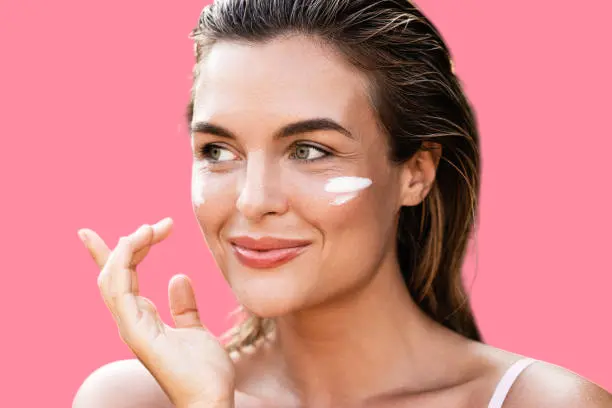Skin is affected by multiple environmental factors, the most important of which is exposure to ultraviolet rays from the sun.
With increasing temperatures and weather fluctuations, it becomes essential to enhance skin protection. Therefore, sunscreen plays an important role, not only in preventing tanning or burns, but also in maintaining long-term skin health.
Ultraviolet Light and Its Effect on the Skin Barrier
Continuous exposure to sunlight contributes to weakening and damaging the skin's natural barrier, as:
- UVA rays penetrate the deep layers of the skin and accelerate aging.
- Cause superficial burns and direct cell damage.
- Chronic exposure leads to inflammation and stress on the skin.
The Role of Sunscreen in Protecting and Strengthening the Skin

Sunscreen helps protect the lipid layer and corneal cells, which form the skin's primary barrier, by:
- Reducing transepidermal water loss.
- Preventing the penetration of external pollutants.
- Supporting the rebuilding of damaged cells.
Types of Sunscreens and Their Role in Protection
Types of sunscreens differ in their mode of action, enhancing their effectiveness in maintaining the skin barrier, as:
- Physical sunscreens reflect ultraviolet rays. Chemical, absorbs and decomposes harmful rays.
- Combination provides dual protection.
The Right Times to Use Sunscreen
The right timing for applying sunscreen plays a crucial role in its effectiveness in maintaining the skin barrier:
- It should be applied 15-30 minutes before going outdoors.
- It should be reapplied every two hours or after swimming and perspiring.
- It should be used even on cloudy days or in bright areas.
The Effect of Sunscreen on Barrier-Degraded Diseases
Regular use of sunscreen helps prevent skin conditions characterized by barrier damage by:
- Prevents eczema and skin irritation.
- Reduces the exacerbation of rosacea and sun-induced acne.
- Reduces the risk of skin cancer.
The Relationship Between Sunscreen and Premature Aging
Sunscreen is one of the most important tools for combating the signs of premature aging:
- It prevents collagen breakdown due to sun exposure.
- It reduces wrinkles and pigmentation.
- It maintains smooth, even skin tone.
Choosing the Right Sunscreen for Your Skin Type

Choosing the right product helps maintain the skin barrier more effectively, including:
- For oily skin, an oil-free, shine-fighting sunscreen.
- For dry skin, a moisturizing formula rich in supporting ingredients.
- For sensitive skin, simple, fragrance-free ingredients.
Misconceptions About Sunscreen Use
There are some common beliefs that lead to incorrect use of sunscreen. Some correct ones are:
- It doesn't clog pores if used correctly.
- It's indispensable when applying makeup or in winter.
- It can't be replaced by supplements or healthy eating alone.
Frequently Asked Questions About Sunscreen and the Skin Barrier
Does daily sunscreen use weaken the skin?
No, it protects it from harmful factors and gives it time to regenerate.
Is using makeup containing SPF enough?
It's often not enough, as the level of protection is low and not applied sufficiently.
What's the difference between SPF 30 and SPF 50?
SPF 50 provides slightly higher protection, but it doesn't replace the need to reapply sunscreen every two hours.
Can children use adult sunscreen?
It's not recommended, as it may contain ingredients unsuitable for their sensitive skin.
Article Summary
Sunscreen is an indispensable tool in your skincare routine, especially for protecting the skin barrier from damage caused by sun rays and pollutants.
Regular use not only prevents tanning or sunburn, but also protects the skin's internal structure, prevents dryness, and delays signs of aging. Therefore, choosing the right product and adhering to its daily application helps maintain a healthy skin barrier.